|
Books Should Be Free Loyal Books Free Public Domain Audiobooks & eBook Downloads |
|
|
Books Should Be Free Loyal Books Free Public Domain Audiobooks & eBook Downloads |
|
Fiction |
|---|
|
Book type:
Sort by:
View by:
|
By: Emily Sarah Holt (1836-1893) | |
|---|---|
 Our Little Lady Six Hundred Years Ago
Our Little Lady Six Hundred Years Ago
| |
 Out in the Forty-Five Duncan Keith's Vow
Out in the Forty-Five Duncan Keith's Vow
| |
 A Forgotten Hero Not for Him
A Forgotten Hero Not for Him
| |
 Lady Sybil's Choice
Lady Sybil's Choice
This historical novel is set in the 1100s in France and Jerusalem, following the First Crusade. Part of the story of Guy of Lusignan is told through the eyes of his fictional sister, Elaine. Guy travels to the Holy Land to reclaim it from the Saracens. Elaine follows afterward, finding upon arrival that her brother has fallen in love with Sybil, the sister of the leper king of Jerusalem. Queen Sybilla, a real historical character, is surrounded by political intrigue as she prepares to ascend the throne, which threatens her upcoming marriage to Guy of Lusignan... | |
By: Emma C. Dowd (-1938) | |
|---|---|
 Polly of Lady Gay Cottage
Polly of Lady Gay Cottage
| |
By: Emma Dorothy Eliza Nevitte Southworth (1819-1899) | |
|---|---|
 Ishmael Or, In the Depths
Ishmael Or, In the Depths
| |
 Her Mother's Secret
Her Mother's Secret
| |
 Hidden Hand
Hidden Hand
| |
 Capitola's Peril A Sequel to 'The Hidden Hand'
Capitola's Peril A Sequel to 'The Hidden Hand'
| |
 Self-Raised Or, From the Depths
Self-Raised Or, From the Depths
| |
 Capitola the Madcap
Capitola the Madcap
| |
 The Lost Lady of Lone
The Lost Lady of Lone
| |
 For Woman's Love
For Woman's Love
| |
 Cruel As The Grave
Cruel As The Grave
| |
 Victor's Triumph Sequel to A Beautiful Fiend
Victor's Triumph Sequel to A Beautiful Fiend
| |
By: Emma Goldman (1869-1940) | |
|---|---|
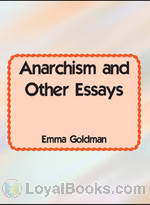 Anarchism and Other Essays
Anarchism and Other Essays
Chicago, May 4, 1886. In the Haymarket region of the city, a peaceful Labor Day demonstration suddenly turns into a riot. The police intervene to maintain peace, but they soon use violence to quell the mob and a bomb is thrown, resulting in death and injuries to scores of people. In the widely publicized trial that followed, eight anarchists were condemned to death or life imprisonment, convicted of conspiracy, though none of them had actually thrown the bomb. A young Russian immigrant, Emma Goldman, had arrived just the previous year in the United States... | |
By: Emma L. Burnett | |
|---|---|
 A Missionary Twig
A Missionary Twig
| |
By: Emma Leslie | |
|---|---|
 Kate's Ordeal
Kate's Ordeal
| |
 Sailor's Lass
Sailor's Lass
On a dark and story night, the Coombers find a little girl. Who is she? | |
 Hayslope Grange A Tale of the Civil War
Hayslope Grange A Tale of the Civil War
| |
 That Scholarship Boy
That Scholarship Boy
| |
By: Emma Marshall (1830-1899) | |
|---|---|
 Penshurst Castle In the Days of Sir Philip Sidney
Penshurst Castle In the Days of Sir Philip Sidney
| |
 Bristol Bells A Story of the Eighteenth Century
Bristol Bells A Story of the Eighteenth Century
| |
By: Emma Orczy (1865-1947) | |
|---|---|
 The League of the Scarlet Pimpernel
The League of the Scarlet Pimpernel
Written by Baroness Orczy and first published in 1919, The League of the Scarlet Pimpernel is a sequel book to the classic adventure tale, The Scarlet Pimpernel. The book consists of eleven short stories about Sir Percy Blakeney’s exploits in rescuing various aristos and French citizens from the clutches of the guillotine. The stories which are listed below, are set in 1793 but appear in no particular order. They occasionally refer to events in other books in the series. | |
By: Emma Speed Sampson (1868-1947) | |
|---|---|
 Mary Louise and Josie O'Gorman
Mary Louise and Josie O'Gorman
| |
By: Emma Wolf (1865-1932) | |
|---|---|
 Other Things Being Equal
Other Things Being Equal
Ruth Levice, the daughter of a rich San Francisco Jewish merchant, meats Dr. Herbert Kemp, and they slowly fall in love. However, she is Jewish and he is not. Can love overcome such an obstacle? And what is more important, duty or love? | |
By: Ernest A. (Ernest Alfred) Aris (1882-1963) | |
|---|---|
 Wee Peter Pug The Story of a Bit of Mischief and What Came of It
Wee Peter Pug The Story of a Bit of Mischief and What Came of It
| |
By: Ernest Bramah (1868-1942) | |
|---|---|
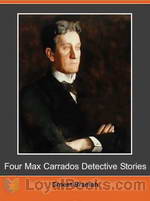 Four Max Carrados Detective Stories
Four Max Carrados Detective Stories
Ernest Bramah is mainly known for his ‘Kai Lung’ books – Dorothy L Sayers often used quotes from them for her chapter headings. In his lifetime however he was equally well known for his detective stories. Since Sherlock Holmes we have had French detectives, Belgian detectives, aristocratic detectives, royal detectives, ecclesiastical detectives, drunken detectives and even a (very) few quite normal happily married detectives. Max Carrados was however probably the first blind detective. | |
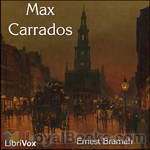 Max Carrados
Max Carrados
Max Carrados is a blind detective who has developed his own remaining senses to a superior level and who has enlisted the superior observations skills of his butler to fill in for any deficiency of his own. His visual deficiency is no obstacle to solving the most difficult cases. As with some better known sleuths, Mr. Carrados' feats amaze, entertain and satisfy. | |
 Wallet of Kai Lung
Wallet of Kai Lung
The Wallet of Kai Lung is a collection of fantasy stories by Ernest Bramah, all but the last of which feature Kai Lung, an itinerant story-teller of ancient China. The collection's importance in the history of fantasy literature was recognized by the anthologization of two of its tales in the celebrated Ballantine Adult Fantasy Series. | |
By: Ernest Christopher Dowson (1867-1900) | |
|---|---|
 A Comedy of Masks A Novel
A Comedy of Masks A Novel
| |
By: Ernest Daudet (1837-1921) | |
|---|---|
 Which? or, Between Two Women
Which? or, Between Two Women
| |
By: Ernest Glanville (1855-1925) | |
|---|---|
 In Search of the Okapi A Story of Adventure in Central Africa
In Search of the Okapi A Story of Adventure in Central Africa
| |
By: Ernest Howard Crosby (1856-1907) | |
|---|---|
 Captain Jinks, Hero
Captain Jinks, Hero
| |
By: Ernest Oldmeadow (1867-1949) | |
|---|---|
 Susan
Susan
Susan is a perfect gem of a maid until suddenly she begins to mess things ups and is so distracted that her mistress Gertrude is determined to find out what is bothering her. After much prodding Susan confesses that she has had a marriage proposal by letter from a Lord Ruddington whom she has never met. Should she accept?? Things get a little complicated as we follow this delightful story which unfolds in diary form written by Miss Gertrude. It will make you smile and sometimes laugh out loud. Enjoy! - Summary by Celine Major | |
By: Ernest Poole (1880-1950) | |
|---|---|
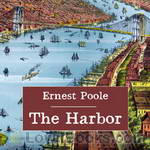 The Harbor
The Harbor
The Harbor was written in 1915 by Ernest Poole. The novel is considered by many to be one of Poole’s best efforts even though his book, The Family won a Pulitzer Prize. The Harbor is a fictional account of life on a Brooklyn waterfront through the eyes of Billy as he is growing up. The novel starts with Billy the child, living on the harbor with his father, mother, and sister, Sue. During this time he also meets Eleanor who, at that time, he considers to be strange. She later becomes an important character in the novel... | |
 His Family
His Family
The 1910s is historically considered the decade of greatest social change in history. It saw the advent and proliferation of the automobile, electricity, lighting, radio, telephone and cinema. Our present time of change is actually quite tame in comparison, though also breathless. His Family is a tale of a widowed father, working to manage this decade of change as it affects his family in New York City. His Family was the first winner of the Pulitzer Prize for literature in 1919. | |
 His Second Wife
His Second Wife
| |
By: Ernest Thompson Seton | |
|---|---|
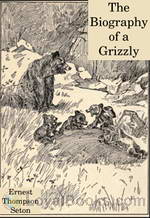 The Biography of a Grizzly
The Biography of a Grizzly
I first read this little book when I was in the fifth grade, and now more than fifty years later, I still find it fascinating. Ernest Thompson Seton was a man with a concern for nature her creatures and an excellent story teller. I could almost feel Wahb, the great grizzly’s pain and frustration as he tried to avoid contact with humans and just be left alone to carry out his bear business. Listening to this audio book will be an hour and a half well spent.Summary by Mike Vendetti, Narrator. | |
 Two Little Savages Being the adventures of two boys who lived as Indians and what they learned
Two Little Savages Being the adventures of two boys who lived as Indians and what they learned
| |
 Rolf in the Woods
Rolf in the Woods
| |
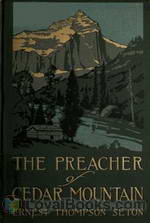 The Preacher of Cedar Mountain A Tale of the Open Country
The Preacher of Cedar Mountain A Tale of the Open Country
| |
 The Biography of a Grizzly
The Biography of a Grizzly
| |
By: Ernest William Hornung (1866-1921) | |
|---|---|
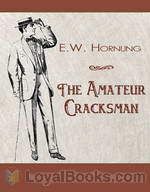 The Amateur Cracksman
The Amateur Cracksman
“I’d tasted blood, and it was all over with me. Why should I work when I could steal? Why settle down to some humdrum uncongenial billet, when excitement, romance, danger and a decent living were all going begging together” – A. J. Raffles, The Ides of March. | |
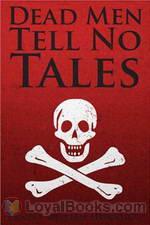 Dead Men Tell No Tales
Dead Men Tell No Tales
Ernest William Hornung (June 7, 1866 – March 22, 1921) was an English author. Hornung was the third son of John Peter Hornung, a Hungarian, and was born in Middlesbrough. He was educated at Uppingham during some of the later years of its great headmaster, Edward Thring. He spent most of his life in England and France, but in 1884 left for Australia and stayed for two years where he working as a tutor at Mossgiel station. Although his Australian experience had been so short, it coloured most of his literary work from A Bride from the Bush published in 1899, to Old Offenders and a few Old Scores, which appeared after his death... | |
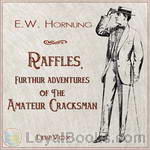 Raffles, Further Adventures of the Amateur Cracksman
Raffles, Further Adventures of the Amateur Cracksman
Raffles, Further Adventures of the Amateur Cracksman (also published as The Black Mask) is the second collection of stories in the Raffles series. After the dark turn of events at the end of The Gift of the Emperor, Bunny’s done his time and, his life not being quite what it was before, now finds himself longing for the companionship of his Raffles. | |
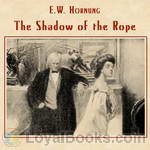 The Shadow of the Rope
The Shadow of the Rope
Rachel Minchin stands in the dock, accused of murdering the dissolute husband she was preparing to leave. The trial is sensational, and public opinion vehemently and almost universally against her. When the jury astonishes and outrages the world with a vedict of Not Guilty, Rachel quickly finds herself in need of protection. It comes in the form of a surprising offer of marriage from a mysterious stranger who has sat through every day of her trial. The marriage to this intriguing stranger, Mr. Steel, is by mutual agreement to be a platonic one, the only condition of which is that neither is ever to question the other about the past... | |
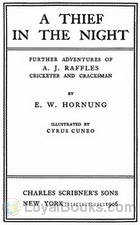 A Thief in the Night
A Thief in the Night
Gentleman thief A.J. Raffles burgles his way through a series of homes in late Victorian England. A Thief in the Night is a short story collection and Hornung's third book in the Raffles series. | |
 Mr. Justice Raffles
Mr. Justice Raffles
A. J. Raffles is a British gentleman thief of some renown who, in this, the hero's final adventure, ironically demonstrates a sense of morality by teaching a London East End loan shark a lesson. The book was later made into a movie, as well as a British television series. | |
 Stingaree
Stingaree
| |
By: Ernst von Wildenbruch (1845-1909) | |
|---|---|
 Good Blood
Good Blood
| |
By: Erskine Childers (1870-1922) | |
|---|---|
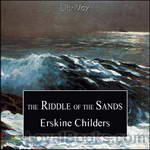 The Riddle of the Sands
The Riddle of the Sands
Containing many realistic details based on Childers’ own sailing trips along the German North Sea coast, the book is the retelling of a yachting expedition in the early 20th century combined with an adventurous spy story. It was one of the early invasion novels which predicted war with Germany and called for British preparedness. The plot involves the uncovering of secret German preparations for an invasion of the United Kingdom. It is often called the first modern spy novel, although others are as well, it was certainly very influential in the genre and for its time... | |
By: Esther Bakewell | |
|---|---|
 The Book of One Syllable
The Book of One Syllable
| |
By: Esther Chamberlain | |
|---|---|
 The Coast of Chance
The Coast of Chance
| |
By: Ethel C. Pedley (1859-1898) | |
|---|---|
 Dot and the Kangaroo
Dot and the Kangaroo
Dot and the Kangaroo, written in 1899, is a children’s book by Ethel C. Pedley about a little girl named Dot who gets lost in the Australian outback and is eventually befriended by a kangaroo and several other marsupials. | |
By: Ethel Calvert Phillips | |
|---|---|
 Christmas Light
Christmas Light
| |
By: Ethel Hueston (1887-) | |
|---|---|
 Prudence Says So
Prudence Says So
| |
 Prudence of the Parsonage
Prudence of the Parsonage
| |
 Eve to the Rescue
Eve to the Rescue
| |
 Sunny Slopes
Sunny Slopes
| |
By: Ethel Hume Bennett (1881-) | |
|---|---|
 Judy of York Hill
Judy of York Hill
| |
By: Ethel M. (Ethel May) Kelley (1878-) | |
|---|---|
 Outside Inn
Outside Inn
| |
 Turn About Eleanor
Turn About Eleanor
| |
By: Ethel M. Dell (1881-1939) | |
|---|---|
 The Safety Curtain, and Other Stories
The Safety Curtain, and Other Stories
| |
 The Swindler and Other Stories
The Swindler and Other Stories
| |
 The Odds And Other Stories
The Odds And Other Stories
| |
By: Ethel Sybil Turner | |
|---|---|
 Seven Little Australians
Seven Little Australians
This is the story of seven incorrigible children living near Sydney in the 1880’s with their military-man father, and a stepmother who is scarcely older than the oldest child of the family. A favourite amongst generations of children for over a century, this story tells of the cheeky exploits of Meg, Pip, Judy, Bunty, Nell, Baby, and The General (who is the real baby of the family), as well as providing a fascinating insight into Australian family life in a bygone era. | |
 In the Mist of the Mountains
In the Mist of the Mountains
| |
By: Ethel Twycross Foster (1881-1963) | |
|---|---|
 Little Tales of the Desert
Little Tales of the Desert
A six year-old girl named Mary spends Christmas vacation with her parents in the Arizona desert of 1901 or thereabouts. | |
By: Etta Austin Blaisdell McDonald (1872-) | |
|---|---|
 Rafael in Italy A Geographical Reader
Rafael in Italy A Geographical Reader
| |
By: Eugene Field (1850-1895) | |
|---|---|
 The House An Episode in the Lives of Reuben Baker, Astronomer, and of His Wife, Alice
The House An Episode in the Lives of Reuben Baker, Astronomer, and of His Wife, Alice
| |
By: Eugène Sue (1804-1857) | |
|---|---|
 The Mysteries of Paris, Volume 1
The Mysteries of Paris, Volume 1
The Mysteries of Paris (French: Les Mystères de Paris) is a novel by Eugène Sue which was published serially in Journal des débats from June 19, 1842 until October 15, 1843. Les Mystères de Paris singlehandedly increased the circulation of Journal des débats. There has been lots of talk on the origins of the French novel of the 19th century: Stendhal, Balzac, Dumas, Gautier, Sand or Hugo. One often forgets Eugène Sue. Still, The Mysteries of Paris occupies a unique space in the birth of this... | |
 The Wandering Jew
The Wandering Jew
| |
 Pride one of the seven cardinal sins
Pride one of the seven cardinal sins
| |
 A Cardinal Sin
A Cardinal Sin
| |
 Gold Sickle
Gold Sickle
The Gold Sickle; or, Hena the Virgin of the Isle of Sen. A Tale of Druid Gaul is the first part of Eugène Sue's The Mysteries of the People; or, History of a Proletarian Family Across the Ages, in which he intended to produce a comprehensive "universal history," dating from the beginning of the present era down to his own days. Sue's own socialist leanings made this history that of the "successive struggles of the successively ruled with the successively ruling classes". In the first volume we meet the Gallic chief Joel, whose descendants will typify the oppressed throughout the suite of novels... | |
By: Eugene Walter (1874-1941) | |
|---|---|
 The Easiest Way A Story of Metropolitan Life
The Easiest Way A Story of Metropolitan Life
| |
By: Eugene Wood (1860-1923) | |
|---|---|
 Back Home
Back Home
| |
By: Eulalie Osgood Grover (1873-) | |
|---|---|
 Mother Goose The Original Volland Edition
Mother Goose The Original Volland Edition
| |
By: Eustace Hale Ball (1881-1931) | |
|---|---|
 Traffic in Souls A Novel of Crime and Its Cure
Traffic in Souls A Novel of Crime and Its Cure
| |
By: Eva Lecomte | |
|---|---|
 Paula the Waldensian
Paula the Waldensian
Into the home of an interesting but self-centered family in old France comes Paula, a young orphaned cousin, from the little village of Villar, in the Waldensian Valley. Though living very simply, tending cows, goats, sheep and rabbits, Paula has been brought up to know and love the Lord Jesus and read the Scriptures. Her Lord and His Word are the center of her life, and she can no more keep this good news all to herself than she can stop breathing or eating. This causes a good many complications, for her cousins' home was one where "religion" was a forbidden subject, never to be mentioned, and Paula soon found herself forbidden to read her own precious Bible... | |
By: Eva Wilder Brodhead (1870-1915) | |
|---|---|
 A Prairie Infanta
A Prairie Infanta
| |
By: Evelyn Everett-Green (1856-1932) | |
|---|---|
 The Lost Treasure of Trevlyn A Story of the Days of the Gunpowder Plot
The Lost Treasure of Trevlyn A Story of the Days of the Gunpowder Plot
| |
By: Evelyn Raymond (1843-1910) | |
|---|---|
 Jessica, the Heiress
Jessica, the Heiress
| |
 Dorothy's Travels
Dorothy's Travels
| |
 Dorothy on a Ranch
Dorothy on a Ranch
| |
 Divided Skates
Divided Skates
| |
 Dorothy's House Party
Dorothy's House Party
| |
 Dorothy's Triumph
Dorothy's Triumph
| |
By: Evelyn Sharp (1869-1955) | |
|---|---|
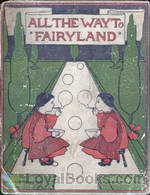 All the Way to Fairyland Fairy Stories
All the Way to Fairyland Fairy Stories
| |
By: Evelyn Snead Barnett | |
|---|---|
 Jerry's Reward
Jerry's Reward
| |
By: Evelyn Whitaker (1857-1903) | |
|---|---|
 Zoe
Zoe
| |
By: Everett B. Cole (1918-1977) | |
|---|---|
 Alarm Clock
Alarm Clock
| |
 Final Weapon
Final Weapon
| |
 Indirection
Indirection
| |
By: Everett McNeil (1862-1929) | |
|---|---|
 The Cave of Gold A Tale of California in '49
The Cave of Gold A Tale of California in '49
| |
By: F. Anstey (1856-1934) | |
|---|---|
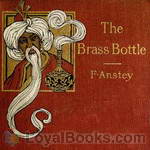 The Brass Bottle
The Brass Bottle
What happens when a not-so-lucky man happens upon a brass bottle and releases the djinni caught within? Misunderstanding, culture shock, hilarity, among other things. Will the well-intentioned djinni help his new master? Or will he make things even worse? | |
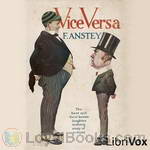 Vice Versa
Vice Versa
Set in Victorian times, the novel concerns business man Paul Bultitude and his son Dick. Dick is about to leave home for a boarding school which is ruled by the cane wielding headmaster Dr. Grimstone. Bultitude, seeing his son's fear of going to the school, foolishly says that schooldays are the best years of a boy's life, and how he wished that he was the one so doing. At this point, thanks to a handy magic stone brought by an uncle from India which grants the possessor one wish, they are now on even terms... | |
 Baboo Jabberjee, B.A.
Baboo Jabberjee, B.A.
Another delightful example of an English writer poking fun at his countrymen, or maybe all races' reactions to someone from a diferent background. A series of adventures of a well educated foreigner in London which originally appeared weekly in Punch, sometimes with illustrations, dealing with the difficulties of fully understanding a different culture. The hero's perfect English reminds one of a quote from "My Fair Lady" ..."His English is too good, he said, "that clearly indicates that he is Foreign. Whereas other people are instructed in their native language English people aren't." | |
By: F. Bayford Harrison | |
|---|---|
 Littlebourne Lock
Littlebourne Lock
| |